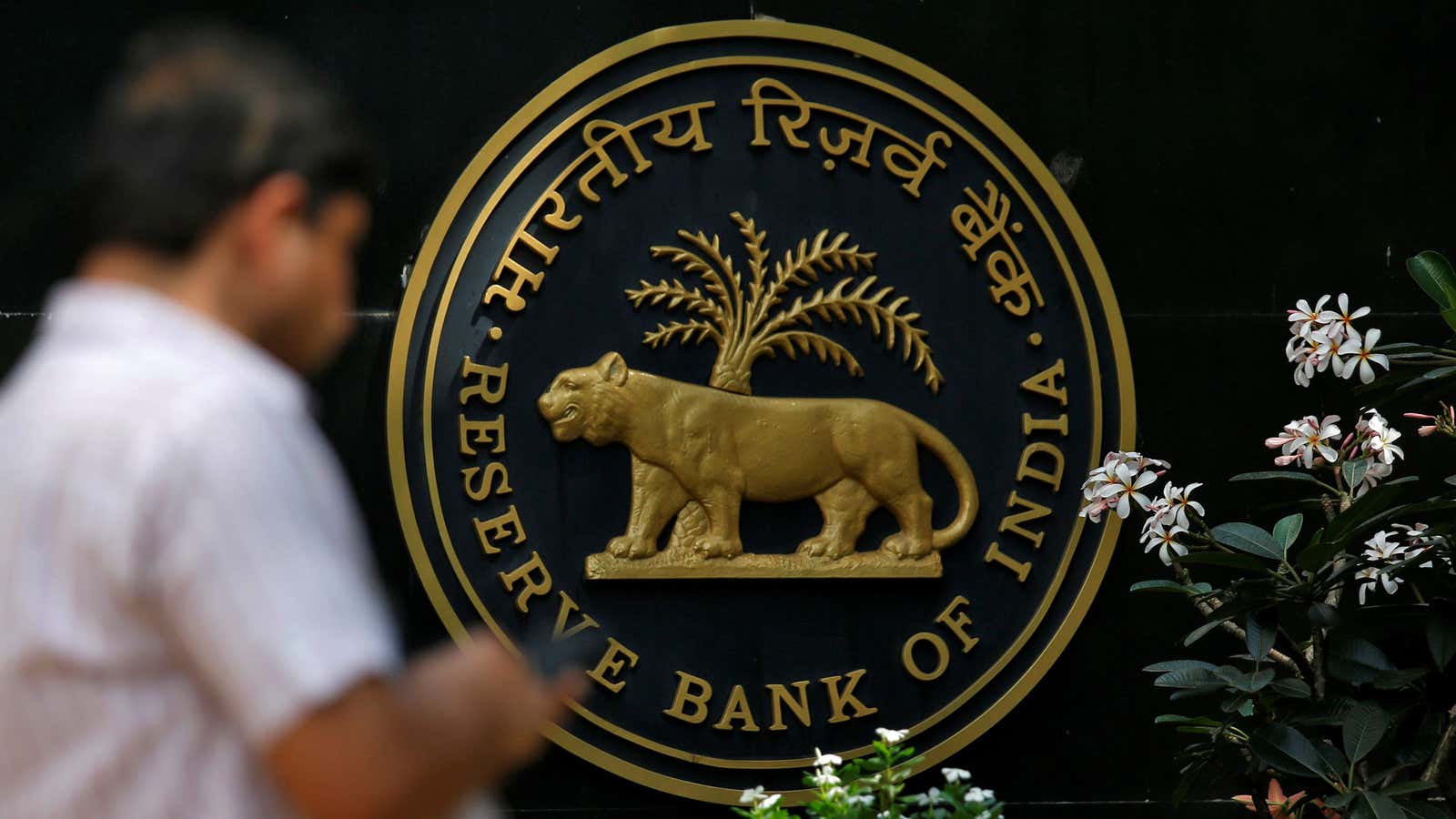The Reserve Bank of India (RBI) has created a new department to identify challenges and opportunities in financial technology, particularly around cryptocurrency. The new fintech department has been operational since Jan. 4, the central bank said.
Indian tax authorities are already going after cryptocurrency exchanges for alleged tax evasion, despite a lack of clarity on crypto taxation, while stakeholders have also been raising concerns about the lack of regulations for the country’s crypto industry for more than a year.
The department could be active on the cryptocurrency front, in terms of framing regulations—the central bank has recently voiced its stance on virtual tokens. The RBI will provide a framework for further research on financial technology that could aid policy interventions, according to a memo circulated last week.
India’s digital currency
Apart from cryptocurrency, experts believe the creation of the RBI’s central bank digital currency will also fall under its purview. The central bank announced plans for a sovereign digital currency in July 2021 and a pilot run could happen as soon as in the next fiscal year, beginning April 1.
“There is speculation that the recent calls for regulating Web 3 assets were one of the primary catalysts for the new department,” says Arjun Khazanchi, co-founder and chief legal officer of decentralized lending platform Rooba Finance.
Indian venture capital firms are betting big on Web 3.0 startups as these companies are said to be the products for the next stage of the internet, characterised by a decentralised ecosystem based on blockchain technology. Apart from that, there is mushrooming interest for play-to-earn crypto games that needs regulation by the RBI.
Various financial services through digital modes such as cross-border payments, peer-to-peer lending, and asset management require regulatory oversight, according to Khazanchi.
With the crypto and the NFT craze gathering momentum across the world, including in India, financial regulators must stay ahead of the curve in order to protect investors against fraud and prevent illegal activities involving money.
App-based lending
In its latest Financial Stability Report (pdf), the RBI highlighted rising defaults in loan repayments in the fintech-led consumer credit space, something else that could come under the oversight of the new department.
After the covid-19 pandemic began in 2020, small-scale digital loans from companies like BharatPe, Paytm, and Mobikwik became increasingly popular as people sought to make ends meet, as did “buy now, pay later” purchase models. Meanwhile, the RBI itself introduced UPI-based payment products for feature phones in December 2021.
To help prevent distressed loans, the fintech department can mandate guidelines for borrowers, and ensure proper adherence to lending protocol.
Of late, there have been cases of customers falling into the trap of fake lending apps. The RBI’s new department can help in the regulation and licensing of digital lending platforms. The supervision of fintech entities, products, and services will be a key function of the department, experts said.
“There have been numerous challenges faced by fintech companies from KYC verifications to auto-debit on credit cards…a department (in the RBI) or a wing dedicated to catering the fintech needs is the need of the hour,” Sathvik Vishwanath, chief executive officer and co-founder of cryptocurrency exchange Unocoin said.
